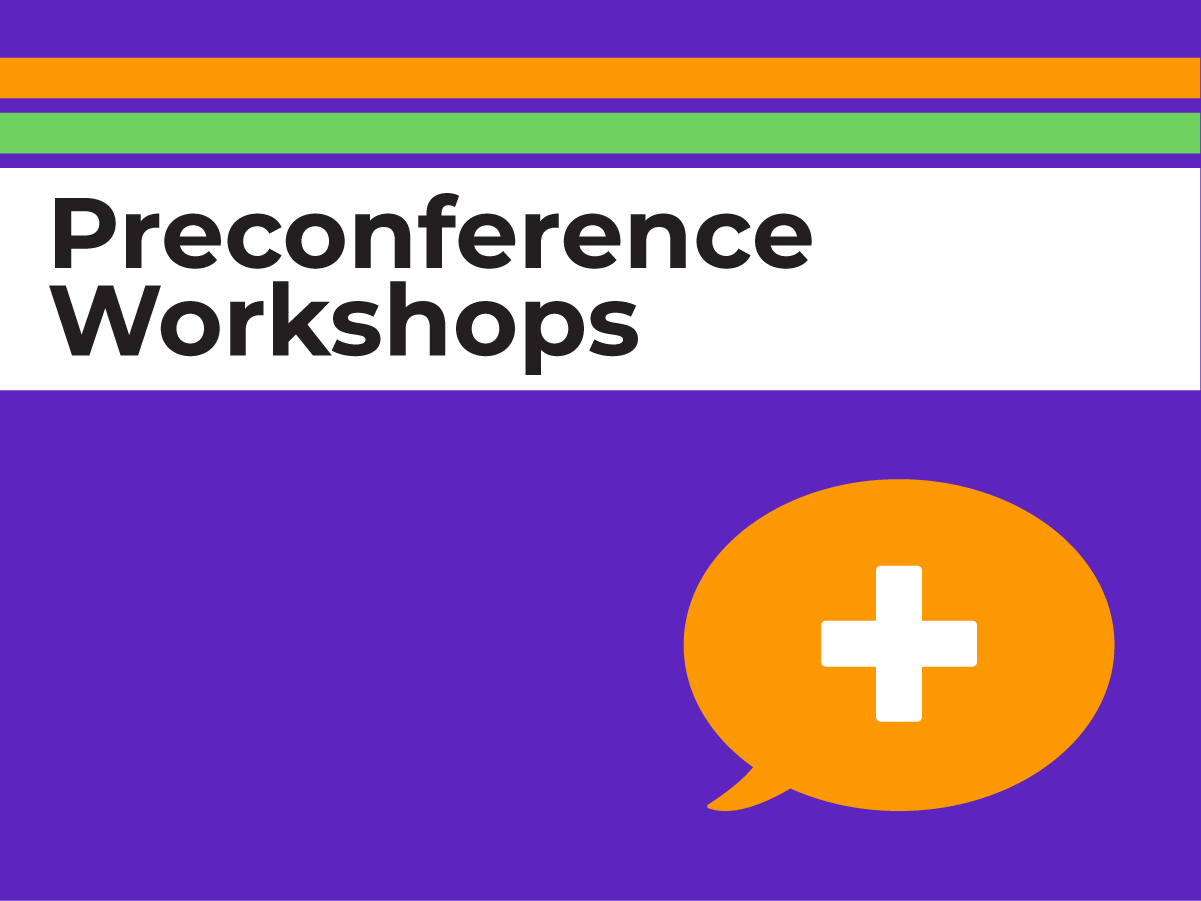Information About Preconference Workshops
PR1: Faculty for Tomorrow Workshop for Residents
When: Saturday, May 2, 8 am–5 pmWhere: Marriot New OrleansCost: $50 (includes refreshments, training materials, and CME); lunch is not includedAttendance Limit: 100This full-day preconference workshop, presented by the STFM Graduate Medical Education Committee, is for residents and fellows who are interested in careers in academic family medicine. The workshop will include inspiring stories from academic family medicine leaders, sessions on key teaching and academic skills, an interactive leadership training session, and a session on the nuts and bolts of academic career tracks and promotion. Get the knowledge and skills you need to succeed and thrive as new faculty. A diverse group of faculty will give behind-the-scenes insights into academic roles in sessions like "What You Might Not Know about Careers in Academic Medicine", targeted discussion on "Giving Feedback", "Finding Your Job in Academia", and "Success as a New Faculty Member". You will also learn how to lead change in every setting in "The Physician as Leader".Registration for the workshop is available through the STFM Annual Spring Conference registration page.
PR2: Generative AI Bootcamp for Family Medicine Clinician Educators, Scholars, and Learners
When: Saturday, May 2, 1–5 pmWhere: Marriot New OrleansCost: $150 (includes refreshments, training materials, and CME); lunch is not includedAttendance Limit: 150Artificial intelligence (AI) is increasingly influencing health care and education, yet many family medicine educators, clinicians, and scholars feel uncertain about how to apply these tools in practice. This workshop offers a practical, learner-centered approach to understanding and using AI/ML, with content tailored for participants at all levels of experience. The session begins with an overview of AI/ML fundamentals and emerging applications in family medicine, followed by a hands-on prompt engineering workshop and case-based exercises that illustrate real-world uses of varying complexity. Interactive discussions will explore both opportunities and challenges, including bias, transparency, and responsible integration. By the end of the session, participants will be able to explain core AI/ML concepts, including generative AI and large language models (LLMs), apply effective prompt engineering strategies, and identify approaches for integrating these tools into clinical, educational, and scholarly work. Attendees will leave with practical skills, insights, and a growing network of peers committed to advancing the thoughtful adoption of AI in family medicine. All backgrounds are welcome, and no prior experience is required.Registration for the workshop is available through the STFM Annual Spring Conference registration page.
PR3: Building a Curriculum in Transgender Health for Family Medicine Residents: Everything You Need to Know
When: Saturday, May 2, 1–5 pmWhere: Marriot New OrleansCost: $150 (includes refreshments, training materials, and CME); lunch is not includedAttendance Limit: 100Many Transgender, Non-Binary and Gender Diverse (TGD) individuals experience adverse health outcomes and lack access to needed medical care, partially due to a lack of providers with experience in TGD care. Most education on TGD care occurs during brief sessions in medical school; training in the care of TGD patients remains limited in primary care residencies. Family Medicine Residency Program Directors cite lack of available curriculum, faculty expertise, and adequate numbers of transgender patients as barriers to teaching about transgender care. This workshop will address each of these barriers. Presenters from a wide range of FM residencies will share about their curricula, including components of a TGD care curriculum for basic training and advanced training, resources for accessing adaptable didactics, models for clinical training, creating LGBTQIA+ friendly spaces and workflows, and best practices to support TGD residents and faculty. Participants will work in facilitated small groups to focus on actionable next steps and leave with a toolkit of resources to help participants implement or improve their TGD curriculum. Participants will also have the opportunity to expand their own knowledge of TGD care topics.Registration for the workshop is available through the STFM Annual Spring Conference registration page.
Questions?
If you have questions about this conference, contact Kim Sevedge at (800) 274-7928 or the email link below.
CONTACT STAFF WITH QUESTIONS
